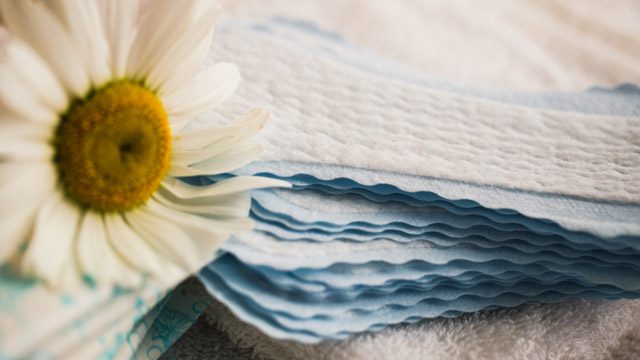SUMMARY
This is AI generated summarization, which may have errors. For context, always refer to the full article.

COPENHAGEN, Denmark – For most adolescent girls, getting their period is a monthly fact of life they will simply have to deal with.
But for many women and girls in developing countries who do not have access to proper toilets and clean water, menstruation increases their risk of infection and makes them vulnerable to bullying and teasing. Lack of proper facilities and the risk of social shame make many girls choose to skip school altogether while menstruating.
Some 2.5 billion people globally do not have access to clean water and toilet facilities. UNICEF and the World Health Organization (WHO) estimate that one in three women around the world do not have safe access to a toilet.
Not enough toilets
Nearly half of schools in low and middle income countries do not have basic toilets.
Gloria Kunyenga, head of the Health Department at the Malawi Red Cross, estimates that 66% of schools in Malawi do not have proper toilets. In rural areas, sanitary napkins are hard to find and very expensive.
“A pack of 10 sanitary napkins costs about $1.50. That’s too expensive, the average minimum wage in Malawi is about $2,” said Kunyenga.
Girls usually manage their period using a variety of ways, rangeing from using old t-shirts to dry leaves.
Sometimes, old cloth or rags are wrapped around their waists to make a “wrap.” The “wrap” would become easily soiled, staining her clothes. “If that happened in school, everyone will know she has her period. She will be made fun of and teased by the boys so she just stays at home while she is on her period,” Kunyenga explained.
Girls miss anywhere between 3-5 days of school a month because of their period. The absences, which run up to about 10% of the total school year, cause grades to drop.
UNESCO, the UN’s educational, scientific and cultural arm, estimates that one in 10 girls in Africa miss school during their period and eventually drop out.
“Too often, girls around the world have no idea what is happening when they are menstruating, causing fear and shame around a completely healthy process. Girls are made more vulnerable to shaming and harassment,” said Therese Mahon, WaterAid Head of Region for South Asia.
According to a USAID study, safe and private toilets for girls in schools combined with private places to wash can boost a girl’s school enrollment by 11%.
Reusable menstrual pads
The Malawi Red Cross regularly conducts Girls Groups where mothers and daughters can openly talk about the tough issues that affect teens. It was during these Girls Groups that the idea of making reusable sanitary pads came up.
The Malawi Red Cross trained the girls how to make a reusable sanitary pad using pieces of cloth cut out to look like a menstrual pad with wings. A water resistant material is sewn together with the cloth and the “wings” are clipped around the crotch part of the underwear to secure it in place.
“All the cloth materials are easily available. The water resistant material can be replaced with any sort of plastic,” said Kunyenga.
The Malawi Red Cross gives the girls enough materials to initially make about 3 reusable pads. The pads last for about half a year and the materials cost about 1,000 ($1.40) Malawi Kwacha, which is still much cheaper than using commercially available pads that would run up to 2,000-3,000 ($2,90-$4.30) per menstrual cycle.
Making the reusable sanitary pads has also resulted in another benefit. The girls found a market for the pads and began making extra pads to sell. Now, some mothers also earn from making and selling reusable menstrual pads.
“The girls were already going to school before. Now they are staying in school,” said Kunyenga.
Long-term solutions
In Uganda, Netherlands-based NGO SGV works with over 200 schools that have added making reusable pads to school arts and crafts or health programs.
The Guardian reported that female parliamentarians in Uganda are lobbying for long-term solutions to the problem of access to toilets and affordable sanitary pads by campaigning for the building of adequate toilets in schools and dropping taxes on sanitary pads.
“There are so many barriers for girls to get an education. This is one (barrier) that we already know we can actually fix,” said Carolynne Wheelter, news manager for aid group WaterAid UK. – Rappler.com
Ana P. Santos, Rappler’s sex and gender columnist, is attending the Women Deliver 2016 conference in Copenhagen, Denmark as a media scholar. Women Deliver is the largest gathering of health experts and advocates working to advance the sexual reproductive health rights of women and girls.
Add a comment
How does this make you feel?
There are no comments yet. Add your comment to start the conversation.